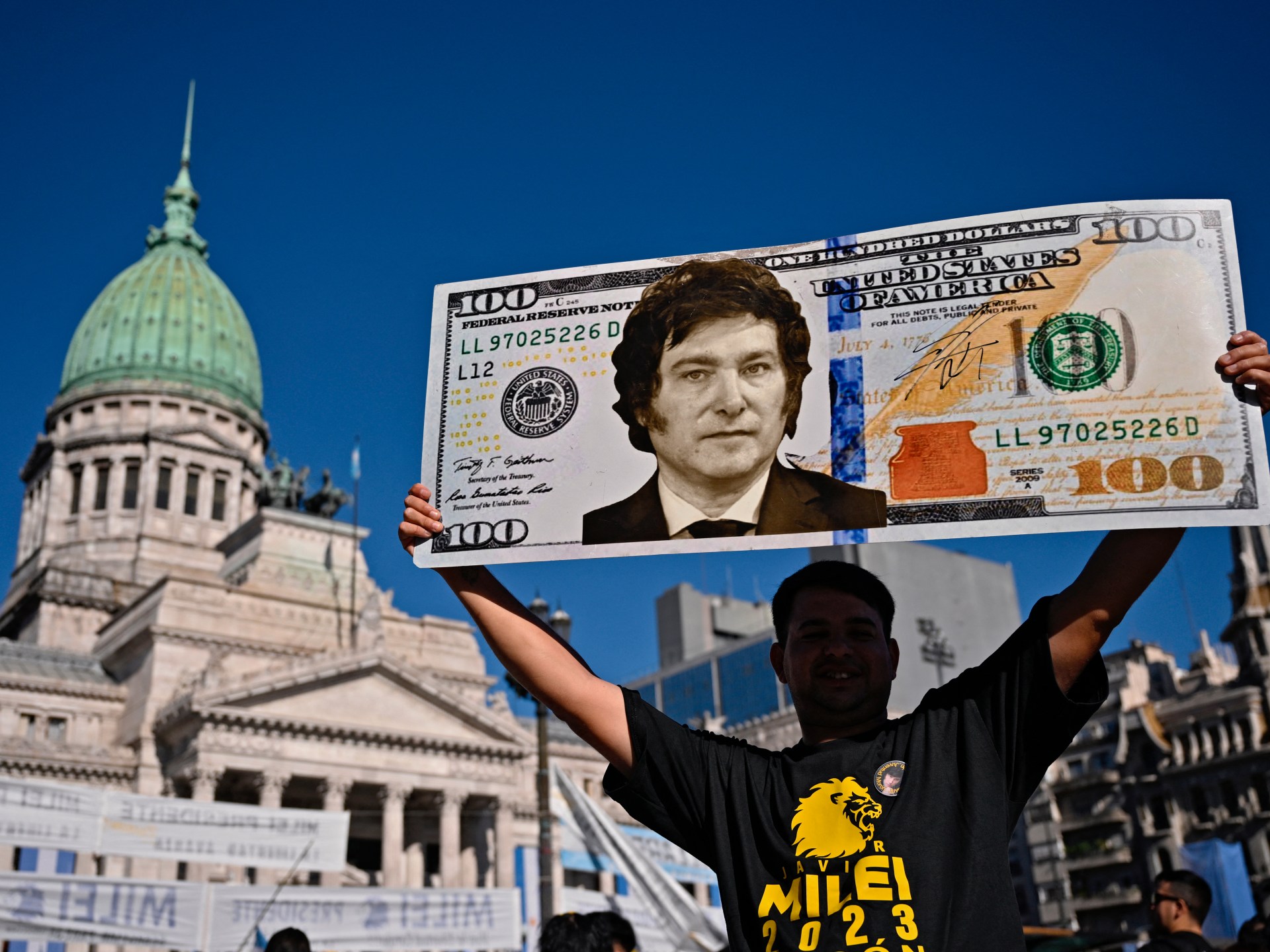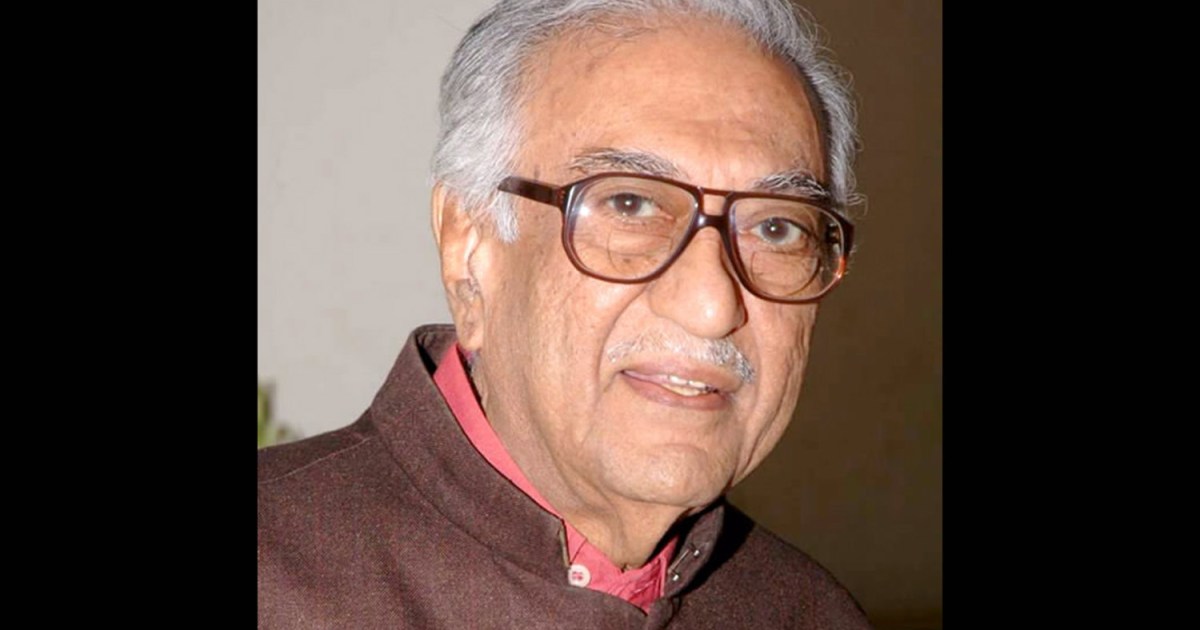
“No hay mal que dure 100 anos, ni cuerpo que loresista,” goes a famous Spanish saying. Translated: “There is no evil that lasts 100 years, nor a body that can endure it.” Former US National Security Advisor and Secretary of State Henry Kissinger may have tried to prove otherwise by celebrating his 100th birthday He survived his birthday before finally meeting his maker six months later, on November 29th.
Following his death, there was a flood of eulogies and eulogies in media outlets around the world. Some called him “controversial” while others praised his legacy.
In these attempts to whitewash Kissinger’s atrocities, we must not lose sight of who he really was.
This is a man who, through his actions during his eight years in office between 1969 and 1977, was directly responsible for the murder of three to four million people, according to Yale University historian Greg Grandin’s book Kissinger’s Shadow. The bloody policies he promoted paved the way for America’s endless wars in later years.
Kissinger was considered the architect of the United States’ efforts to contain the Soviet Union and communist influence around the world. To achieve this, he adopted the “bombs not diplomacy” approach and pushed for some of the most brutal bombing campaigns in modern history.
This approach was first used during the Vietnam War, when the United States tried to prevent the communists from taking power. Kissinger, then serving as President Richard Nixon’s national security adviser, pushed for carpet bombing not only in Vietnam itself but also in neighboring Cambodia, where both Cambodian and Vietnamese guerrillas operated.
In 1969, the military attack was secretly authorized and carried out without notification to Congress. Declassified Pentagon reports said Kissinger personally authorized 3,875 airstrikes in the first year of the campaign, dropping about 540,000 tons of bombs in Cambodia. To this day, innocent Vietnamese and Cambodians are being killed by remaining unexploded US guns.
It goes without saying that the carpet bombing made it easier for the Vietnamese and Cambodian communists to take power. In Cambodia, the Khmer Rouge emerged victorious from the country’s civil war and committed countless atrocities, including a genocide of 1.5 to 2 million people. Famed TV chef Anthony Bourdain wrote, “Once you’ve been to Cambodia, you’ll never stop wanting to beat Henry Kissinger to death with your bare hands.”
For his role in the war in Southeast Asia, Kissinger was despicably awarded the prestigious Nobel Peace Prize in 1973. A war in which he secretly helped Nixon sabotage peace talks between the US government and Hanoi. A war in which his only regret was that he had not used more brutal force to ensure U.S. victory.
The Peace Prize was a slap in the face to the victims of Kissinger’s brutality and further confirmation of the West’s refusal to hold its own war criminals accountable.
Kissinger’s crimes extend beyond Vietnam and Cambodia. In South Asia, Kissinger was concerned that a Soviet-oriented India could cause the collapse of Pakistan, a U.S. ally, and supported Islamabad when its forces committed genocide against the Bengali population of East Pakistan, now Bangladesh, in the early 1970s. Despite being repeatedly warned by U.S. diplomats about the atrocities being committed, Kissinger authorized arms shipments that continued the atrocities.
In 1975, Kissinger also gave the green light to the Indonesian invasion of East Timor to overthrow the communist-influenced Fretilin government. Kissinger condoned the unfolding genocide in which more than 200,000 people were slaughtered and advised Suharto: “It is important that whatever you do succeed quickly.” It is estimated that up to a fifth of the Pacific island’s population arrived during the killed in the Indonesian occupation that lasted until 1999.
Right-wing forces and putschists throughout Latin America could also count on Kissinger’s support. In 1973, Salvador Allende, Chile’s democratically elected president, was overthrown in a coup with the full support of the United States and its foreign minister. Three years later, after the army in Argentina overthrew President Isabel Peron and established military rule, Kissinger gave the green light to the horrific human rights abuses she had committed.
In 2016, then US President Barack Obama expressed regret over the US role in the “dirty war” in Argentina. But just two months after this perfunctory apology, his government awarded the chief architect of this policy the Distinguished Public Service award.
Kissinger also proved to be a spoiler of peace in the Middle East. He not only sabotaged proposals for an agreement between Israel and Arab states coming from Moscow, but even undermined those coming from Washington.
Although Kissinger was a staunch supporter of Israel, he showed a shocking disregard for Jewish life. In a conversation with Nixon, he was recorded as saying, “The emigration of Jews from the Soviet Union is not a goal of American foreign policy… And if they put Jews in gas chambers in the Soviet Union, that is not an American concern.” Perhaps a humanitarian concern. “
After leaving his post as Secretary of State, Kissinger continued to press for death and destruction in books, interviews, articles, and advice to U.S. officials worldwide.
As an Iraqi, I find the criminal role he played in the Bush administration’s decision-making in the war against Iraq particularly disturbing. Bush leaned on him when he implemented his “shock and awe” strategy and decided to carpet bomb Iraqi civilians even though the bombing campaigns in Cambodia and Vietnam had failed spectacularly.
Kissinger’s advice to the president in 2006 was simple: “Victory is the only sensible exit strategy.” So Bush resorted to an increase in US troops, which led to a sharp increase in the number of civilian deaths. My own family’s homes in Baghdad were raided by U.S. troops and many of them were forced to flee to neighboring Jordan and elsewhere.
Even as Kissinger spent his final days (peacefully, unlike his many victims) in his Connecticut home, he could not stop himself from promoting the war. In an interview with Politico after the October 7 attack in Israel, Kissinger announced his full support for Israel’s brutal war on Gaza, saying: “You can’t blame the people who have declared and shown by their actions that they cannot make peace , make no concessions.” ”
The legacy Kissinger leaves behind is truly terrible. He shaped American politics and policymaking to reinforce the belief that bloody and violent imperial policies pay off and that it is okay to defend the “national interest” at the cost of millions of lives. Today, as we are witnessing in Gaza, U.S. officials remain convinced that carpet bombing and mass killings of civilians can produce desired political outcomes.
If Kissinger was never brought to justice, can we expect Israeli officials to ever be held accountable?
In fact, the true tragedy of his life and death is that he proved that the powerful can get away with killing millions with impunity and still be celebrated after they die peacefully.
The views expressed in this article are the author’s own and do not necessarily reflect the editorial stance of Al Jazeera.






Recent Comments